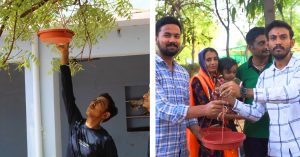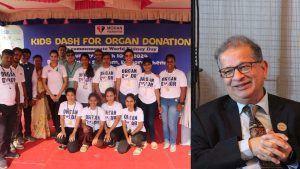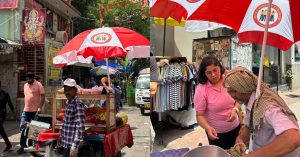Why an 87-YO Trained 1 Lakh Indians On How to Save Lives After Road Accidents
After her retirement as an anesthesiologist, Dr Maya Tandon dedicated her time to saving lives on the road. Through her NGO Sahayta Trust, she has trained around 1 lakh individuals in road safety, CPR, accident response, and emergency protocols.
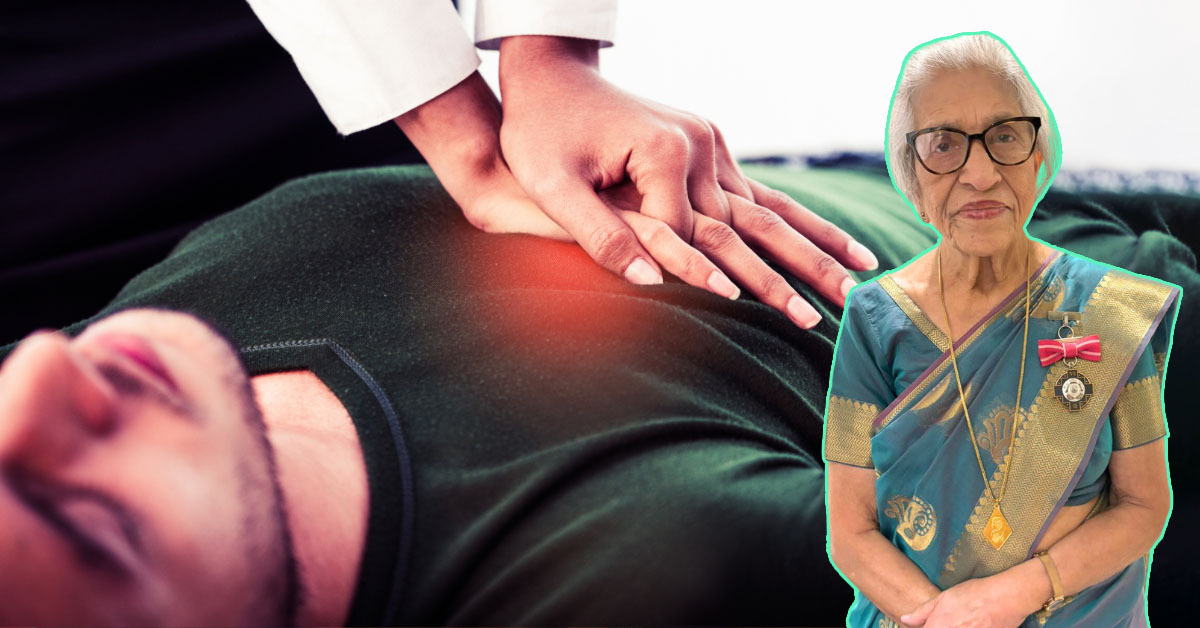
Reflecting on when she received the Padma Shri award for her contributions to road safety in India, Dr Maya Tandon says, “It was the greatest moment of my life.”
The 87-year-old retired anesthesiologist has devoted her post-retirement years to making Indian roads safer. “While many are familiar with road safety protocols and first aid, few know how to perform them effectively,” she said in a conversation with The Better India.
Dr Maya trains people in road safety through her organisation ‘Sahayta Trust’. Working relentlessly for the past three decades, she says she has trained 1,33,000 people in road safety, CRP (cardiopulmonary resuscitation), sequential handling, and protocol dealings with accidents.
With a zeal for life and a passion for working for society — stronger than ever — Dr Maya reflects on her journey and shares what led her to this path.
When saving lives became her mission
Born and raised in Ajmer, Dr Maya was a starry-eyed child who dreamt of doing something great. “Given the times that I was born in, my family was very supportive and liberal. I scored good marks on the school board exams and got admitted to medical school in Ajmer and Delhi,” she recalls.
She grew up in luxury, which allowed her the freedom to choose her own path in life. So she decided to pursue a career in medical science.
“I did my internship in Ajmer, where I met my husband. We decided to get married and moved to Jaipur,” she recalls.
In 1968, Dr Maya gave birth to her son. “After that, I chose to pursue a diploma in anesthesiology because it was a career that I could manage while raising a family. By the time I completed my diploma, I had also given birth to another child, my daughter,” she says.
In 1972, she also did an MS in anaesthesia. “I was also giving lectures on anaesthesia at a medical college in Jaipur where I came across an opportunity. It was a fellowship in London for paediatric anaesthesia. With my family’s support, I was able to attend that,” she says.
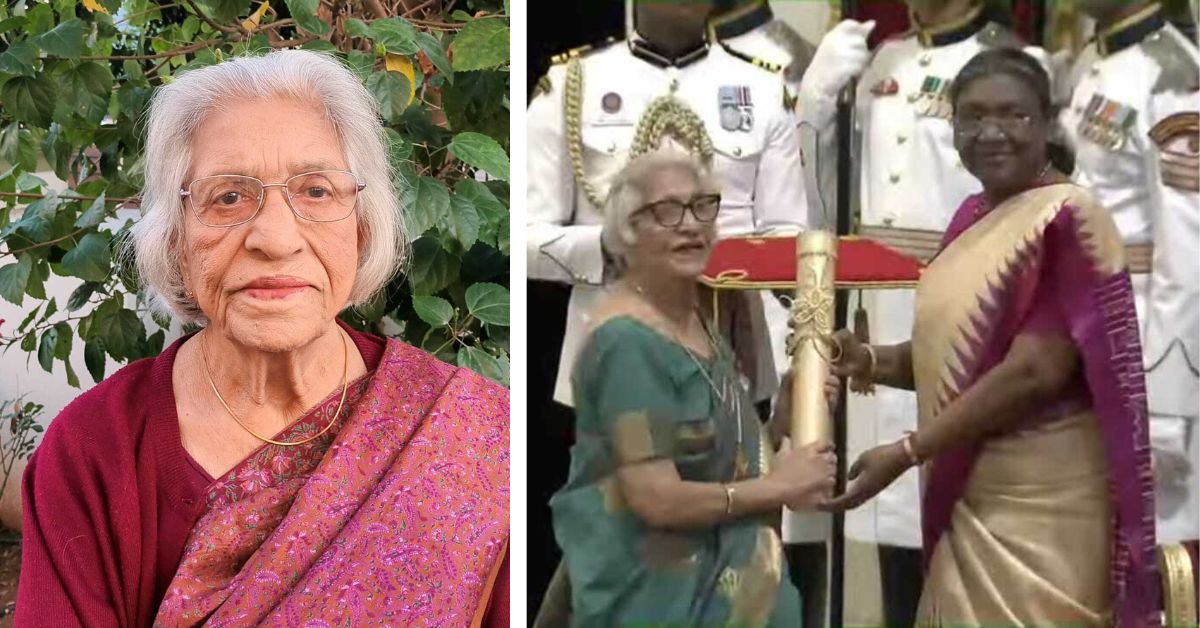
After completing her fellowship, she returned to India and began working in Jaipur. “The role of an anesthesiologist is often seen as a behind-the-curtain job. However, for me and in medical sciences, the patient’s life depends on us,” she emphasises, highlighting her deep interest in lifesaving work.
In 1975, she earned the honour of becoming superintendent and spent the rest of her career managing the hospital while serving as the head of anaesthesia at Sawai Man Singh Hospital.
“It was around the time of my retirement in 1985 when the Rajasthan Police Academy in Jaipur contacted me and requested I give a three-day course on road safety and lifesaving. I readily agreed to the request, unaware that it would shape the course of my post-retirement life,” Dr Maya reminisces.
The course was very successful and all the senior officers posted on highways in and around Jaipur were sent to her for yet another course. “A photographer had come to take some pictures of the event. It was a few months later that he rang me up and told me that I had saved his life,” she shares.
The photographer had been in an accident and could feel bleeding in his inner thighs and back. “The people around him were not sure how to help him and were taking pictures of him. He explained someone to lift him and put him in a certain position that slowed the bleeding,” she narrates.
This timely move reduced the blood loss and saved the photographer’s life. “His words and appreciation made me realise the importance of offering such courses. It also revealed the sad reality of the state of road safety in India. Not one of the persons in the crowd knew lifesaving steps,” she says.
With an intention to change the scenario of road safety in India, Dr Maya started the Sahayta Trust. Since then, she has given free courses, seminars, and lectures to over 1,33,000 individuals.
“All these courses are conducted free of charge. The aim is to raise awareness about CPR (cardiopulmonary resuscitation), proper handling techniques, and protocols for dealing with accidents. We also inform participants about the various laws that protect a lifesaver from police investigation,” she explains.
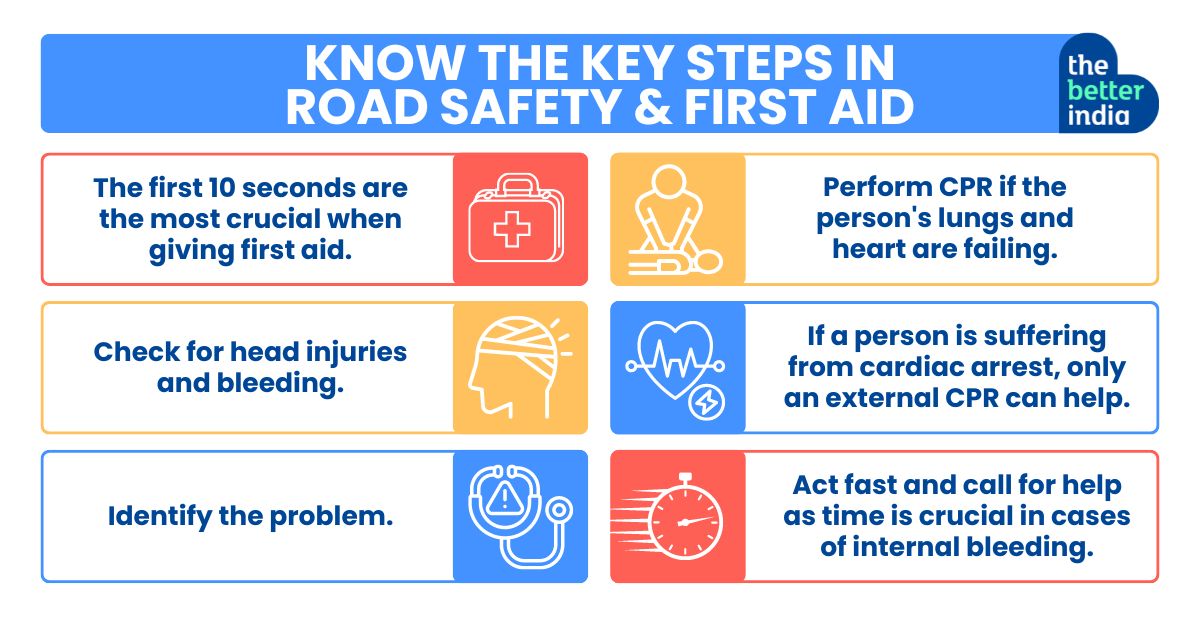
Anil Kumar Gill from Gudha Godji, a small town in Rajasthan, participated in the seminar on road safety. “I was going about my day, working in my shop, when I got to know that a team from Jaipur had reached our small town. I was keen to know what they were sharing and had to try it. We are always aware of the safety threats on the road but attending the seminar helped me understand what can be done to save a life,” he says.
“We were told how we can give CPR and first aid to an injured person. We were also given instructions about who we can contact for help if a person needs to be taken to the hospital. They also told us about the various road safety rules and laws, which I had no idea existed. I think such seminars are very important as there is a lack of awareness in rural areas,” he adds.
How you can help?
Talking about how there is a lack of awareness among bystanders during an accident, she says, “People have a misconception about helping a person who has had an accident. There are clear laws that save the bystanders from any kind of investigation, but there are not many people who know this.”
Pointing out that this lack of awareness brings hesitation in people to help the injured person, she adds, “Even if you can’t give mouth to mouth to a person who has collapsed, say due to heart attack, giving CPR can save their life.”
Explaining what levels of intervention Sahayta Trust does, Dr Maya says, “We have different ways of reaching out to the public. We do seminars both online and offline; we also conduct workshops and classes. Additionally, we also do rallies and street plays to raise awareness.”
The module that the trust follows for the seminars and courses is Maya’s speciality. “In a small course, we prioritise giving them the instructions of what to do in the first 10 seconds,” she informs.
“Check for head injuries and bleeding; once you have secured what the problem is, you can act accordingly. If a person’s lungs and heart are giving out, resorting to CPR is the best way. Time is of the essence when there is internal bleeding. If a person is suffering from cardiac arrest, only an external CPR can help,” she says.
Apart from courses and training, the trust also works with government agencies to ensure that there are emergency services in public places like malls and airports.
The major hurdle that Maya faces is to bring people to attend the workshops. “The Indian public is always in a hurry. It is very hard for them to take time and reach us. We see a low rate of response as they don’t have time to keep visiting our courses,” she says.
“India is leading in road accidents and road deaths. To combat this lack of response, we are working on a model where we train people, especially from rural areas, in lifesaving. And then they reach out to more,” Dr Maya informs.
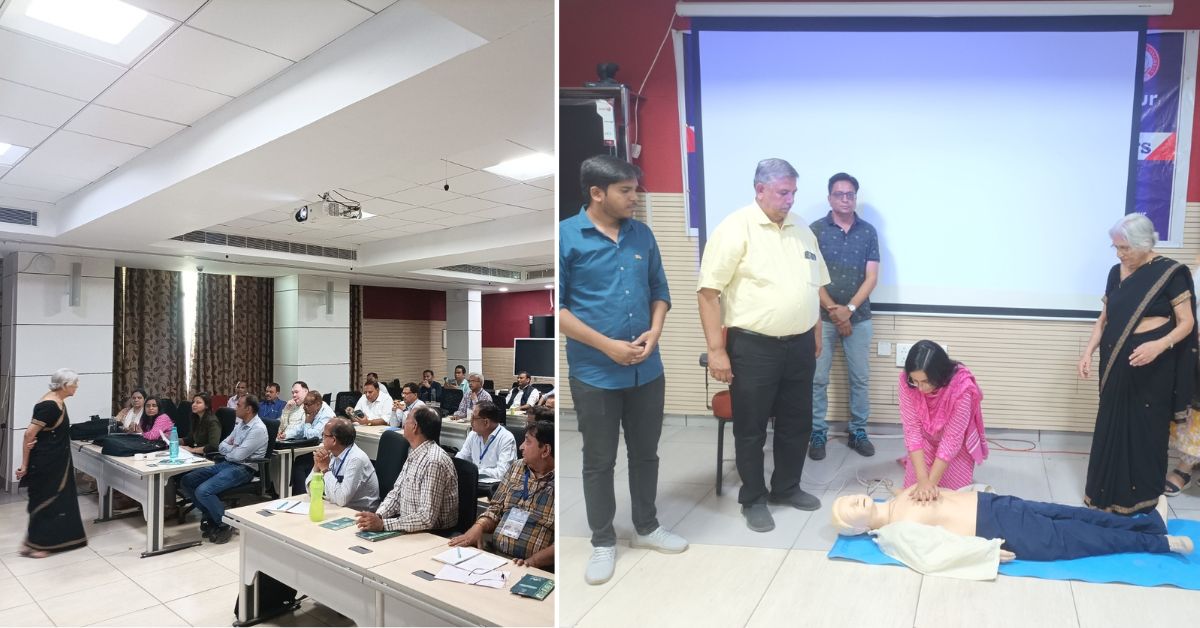
The trust provides the person with pieces of equipment and mannequins to the ‘Sanjeeva’ (lifesaver), and they, in turn, help us spread the word.
However, Dr Maya Tandon shares that she can use your help to cover the cost of equipment as well as to make our roads safer. Here’s how:
Dr Tandon is always seeking financial assistance to train villagers living near highways, as they are often the first responders to attend to the injured. You can donate here.
(Edited by Pranita Bhat; All pictures credit: Dr Maya Tandon)
If you found our stories insightful, informative, or even just enjoyable, we invite you to consider making a voluntary payment to support the work we do at The Better India. Your contribution helps us continue producing quality content that educates, inspires, and drives positive change.
Choose one of the payment options below for your contribution-
By paying for the stories you value, you directly contribute to sustaining our efforts focused on making a difference in the world. Together, let's ensure that impactful stories continue to be told and shared, enriching lives and communities alike.
Thank you for your support. Here are some frequently asked questions you might find helpful to know why you are contributing?






